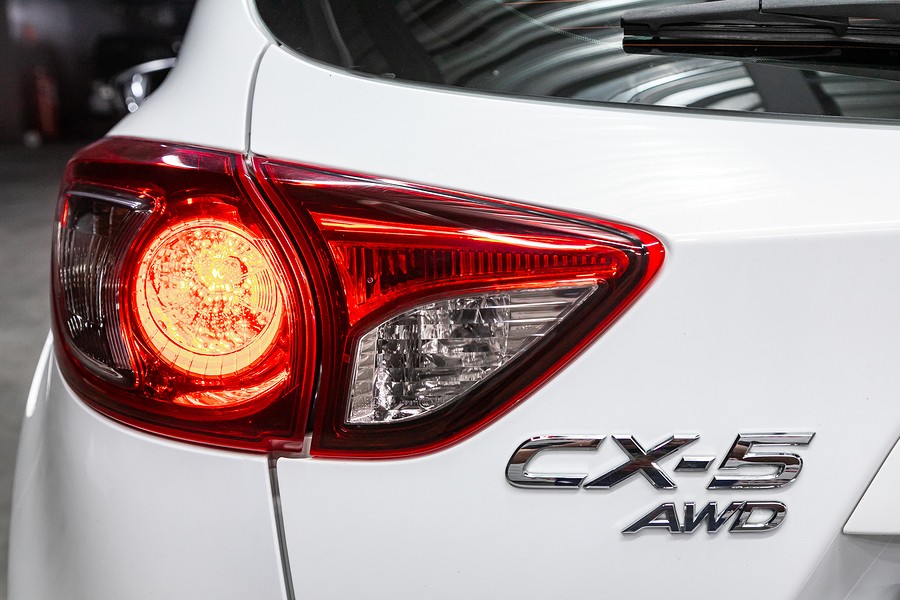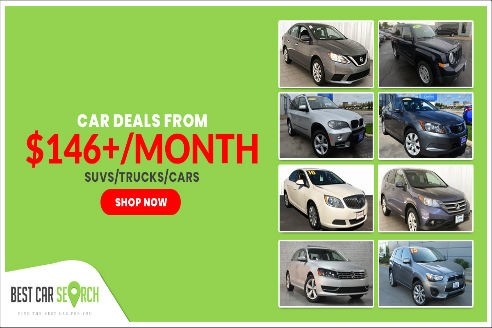No doubt even the most seasoned car buyer has gotten confused about all the differences, pros, and cons of AWD vs.FWD. This article serves as an in-depth look at both so you can understand the differences, pros, and cons of each and what might be the best choice for you or your family.
The over-riding difference between AWD vs.FWD is simply where the engine will send its power. If you have FWD the engine power goes to the front axle. If you have AWD, the engine power goes to both (front and rear) axles. Many of the cars on the road in 2020 do indeed have FWD. However, the number of cars (not just SUV’s) that have AWD increases every year – and is a choice that can always be added if you are willing to pay the increased price for the AWD. What we want to try and help you determine in this comprehensive guide is to know whether it is worth the extra cost? Which is better for you? AWD or FWD.? Ultimately, of course, the choice is yours.
In making this decision, it should be important to note that since 2012, all passenger vehicles manufactured came with standard equipped “electronic stability control”. This combined with the traction control does significantly advance the ability of all road-handling and conditions, despite if the vehicle is AWD or FWD.
However, even with, there are significant and marked features between the two. So, AWD vs. FWD? Which one will be right for you?
What is the difference between all-wheel-drive (AWD) and front-wheel drive (FWD)?
Initial Questions to ask to help you determine
- Some quick basic questions will help you determine and narrow down what you truly need in short order.
- How much snow and ice do you drive-in?
- Do you drive in high altitudes?
- How much rain falls in a year where you live?
- Do you drive on dirt and gravel roads regularly?
If you answered all the questions no, your choice will be simply – you do not need AWD if your answer was not to all the questions. However, if you answered yes to at least one or two of the questions, then AWD should at least be a consideration taking into effect all other factors. If you answered yes to all four of the questions and all the above conditions apply to where you live and work and drive, then your best choice, is to choose the AWD option.
The Rationale for FWD
There are great benefits to owning a vehicle with FWD – which is why a vast majority of vehicles utilize FWD or AWD.
- A less complicated system
- A lighter weight system, thus making most FWD vehicles more fuel efficient than AWD vehicles.
- Additional room inside, as there is no hump in the back seats where the tunnel for the transmission would be for an AWD, so more room in both front and back seats for comfortability.
- Great traction for upward hill climbing terrain
- Performs well in most weather conditions, including *light snow
- FWD have ABS (anti-lock brake systems) as well as traction control so an FWD will perform well in conditions listed above.
The Rationale for All-Wheel Drive
Just as there are benefits for owning an FWD, so goes the case for an AWD, let us look at some of the advantages.
- All wheels get ALL power in an AWD vehicle, this is because there are a pair of differentials that split the power. Since the power from the engine goes to all the wheels, there is compensation if the vehicle begins to slip.
- AWD will always improve the vehicle’s traction in snowy and ordinary off-road conditions.
- AWD is tough
- AWD is heavy
Differences, Advantages, Disadvantages of Both

As you can already see there are clear and distinct differences between AWD vs.FWD, and cases to be made for both when buying a vehicle. However, let us dig a little deeper at some more benefits and to some disadvantages to both, so you can weigh your options with all the information available about both systems.
FWD PROS
- Fuel Economy
- Additional front and rear space
- Easy to handle in all seasons
- Uncomplicated to service vehicle
- Premiums for Insurance are lower
- Handling can be enhanced with a set of winter tires
- Good options from every manufacturer and nearly every price point
- More affordable
- Tires are less expensive to replace
- Snow tires are an option rather than go full forward with an AWD
FWD CONS
- Lack of capability, in actuality FWD only drive one front wheel and your ability to control the vehicle is extremely vulnerable if you hit a patch of ice or snow and start slipping.
- If you have winter tires, while they perform well on the snow, they do not perform well on a dry pavement or road situation. In addition, you will also have to swamp them out each season.
AWD PROS
- Just as there are distinct advantages and disadvantages with the FWD option packages, so it goes with AWD options and packages, let us look at a few, so you can be better informed about both.
- Capability, four wheels pulling power to the ground means if you lose traction in hazardous road conditions (rain, snow, ice, extreme mud due to rain) you will still have power going to two wheels propelling you forward and avoiding slippage or flip overs.
- Better resale value
- Better handling in changing weather conditions
- Power to all four wheels
Special Note: Sometimes, AWD vehicles are often confused with FWD (four-wheel drive) vehicles. While they both do engage all four wheels there are some key differences, we want to remind you of. For example, a AWD vehicle can operate as a RWD or FWD, however, the majority are FWD. In a FWD vehicle everything is done automatically without the intervention of the driver. Also remember, that AWD vehicles can also be available as FWD just as FWD can be an added option for AWD. If you have a vehicle you really want – the AWD can be taken *off the package deal and thus saving you money. This choice is especially popular with crossover SUV’s.
AWD CONS
- Four tire replacement every time – even if only one is *bad. If you puncture a tire, run over a nail, or damage the sidewall, this cannot be repaired, it must be replaced. Even though only one tire is damaged, as you drive of course, your tires lose tread becoming smaller with each mile you drive. One new tire, and three older tires puts undue stress on the vehicles AWD parts and components. So, to avoid having to purchase new parts due to wear and tear, new tires are less expensive, so if you own a AWD if something happens to one tire, you will in essence be swapping all four tires each and every time – which in the end run, does run up your cost.
- Poor gas mileage – the components in an AWD are heavy and the drivetrain is inefficient so, the AWD will use more fuel.
- Higher initial “sticker price” – the AWD is complex and has the feeling of enhanced road handling and capability – therefore dealers (new and used) will want more money for that AWD vehicle. The price difference can be several thousand dollars, so shop wisely.
- Higher cost of Insurance premiums
Points to remember for both AWD vs. FWD
Generally speaking, an AWD vehicle will provide better *all-season performance on the road. AWD gets and keeps your vehicle moving and under control. Note: However, remember when it comes to stopping an AWD, it operates *exactly the same as every other car. Do not become over-confident with your AWD and then skid when you use the brakes. AWD’s are of course, better on unpaved road and off-track surfaces – as they are built to optimize and find traction on *any surface. (Note: In comparison, FWD vehicles also do well in a mild off-road situation a little mud and dirt will not stop a new FWD vehicle). Of course, 4WD is the best for *extreme and low-gear situations. In general, as already stated, AWD vehicles are preferred for *all-season road performance. A word of caution: Just because you might own or are driving an AWD vehicle, keep in mind it is not *magical, you still can get stuck in the mud. AWD vehicles can sense when there is a slip in the wheel and adapt easier in other conditions as well, such as oil on a road surface or even wet leaves, or even down to school and pedestrian crosswalks that use reflective paint. In the case of rain, your AWD will keep stable on the pavement and you will notice the difference between an AWD and FWD in this instance right off the bat. AWD vehicles engage instantly when wheels start to slip there is no *gap. AWD’s will perform of course better in ice and snow due to engagement. However, if you are residing in a location or climate that has only mild or even moderate winter weather, a FWD option might benefit you just as well and save you potentially thousands of dollars. In the alternative FWD vehicles can also be good in the snow as the engine is found directly above the wheels adding extra weigh to supply needed traction. Additionally, if you own a FWD or thinking of purchasing one, you may well consider the purchase of winter tires to save on money. An AWD vehicle of SUV is also better than a 4WD pick-up truck or SUV on the snow and ice. If cost is a concern, you always have the option for a certified pre-owned AWD vehicle or SUV, as a certified vehicle has been through a check and has been reconditioned by any dealerships service department, and a pre-owned certified vehicle is a great way to save money and still get the features you desire, based on both your needs and wants.
Additional Considerations
Are AWD’s safer?
The prevailing thought is that AWD’s are safer in general, but that is not always necessarily the case. True, the reason many buy an SUV is indeed for the provided extra security and the traction an AWD provides. Many do not realize that while AWD does provide power to all four wheels to increase traction, when it comes to braking or cornering it has no improvements for that at all. Do not be fooled with an AWD as to just how slippery and wet or hazardous conditions may be and drive faster than you should be and then not have the ability to stop when you need. Drivers of AWD’s need to be more vigilant, no matter what type of vehicle you are in if you are driving in hazardous conditions extra caution is called for. In some cases, an excellent set of tires can be more crucial than wheel drives, as because winter tires will indeed help you turn or stop on a hazardous snowy road, and an AWD will not.
AWD – The Future?
Since the introduction of electric and hybrid cars into the car market, there are even more possibilities for *power to wheels. In the case of hybrids, for instance, a manufacturer can place the gasoline engine upfront, which helps with the back-axle wheel assistance. In some EV manufacturers are putting electric motors at each wheel, delivering what they call “personalized power” from the motor directly to the wheel. However, though, no matter how an AWD vehicle is designed if you own one, you should be able to rely on it to get you *anywhere you wish to travel.
Summing Up
There is no *right answer to AWD vs. FWD, as it truly does depend on what you need and want in a vehicle and what will work best for you. There are clearly pros and cons to argue one over the other- there are benefits which ever one you choose. So, to sum up there is no *clear cut winner – it is indeed a matter of choice. This article arms you with a wealth of information to make an informed and well thought out decision.
To conclude, if expense is your major concern and you want to spend as little as possible on both purchase and operating costs, then you should stick with a FWD. If you live in a place where there is very heavy snowfall and missing work is *not an option, or if you are concerned about potential re-sale value, then an AWD is your best bet. In the end, the best choice truly does come down to which vehicle AWD or FWD has the most features you want at the right price for your budget. AWD or FWD – you cannot go wrong either way.




